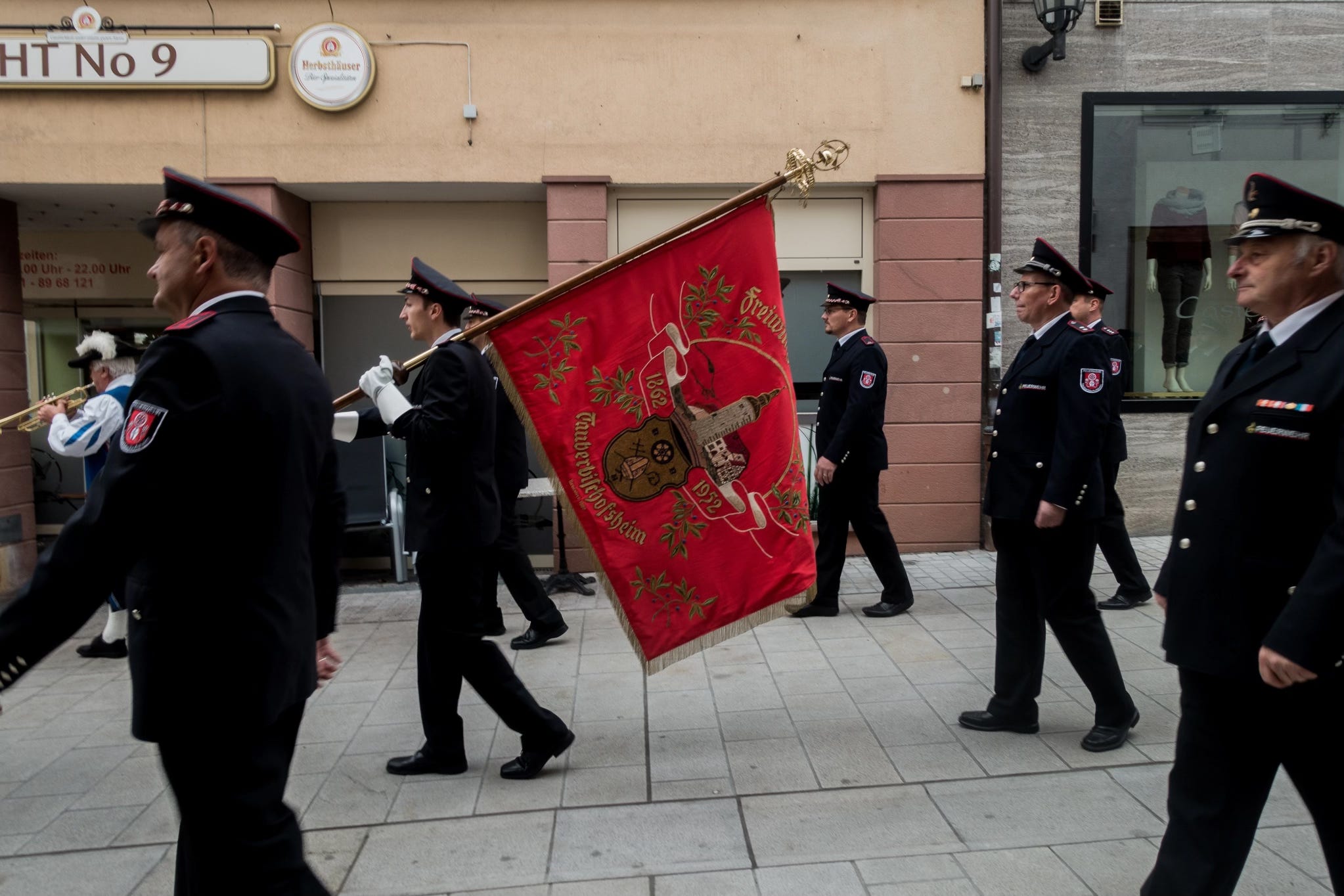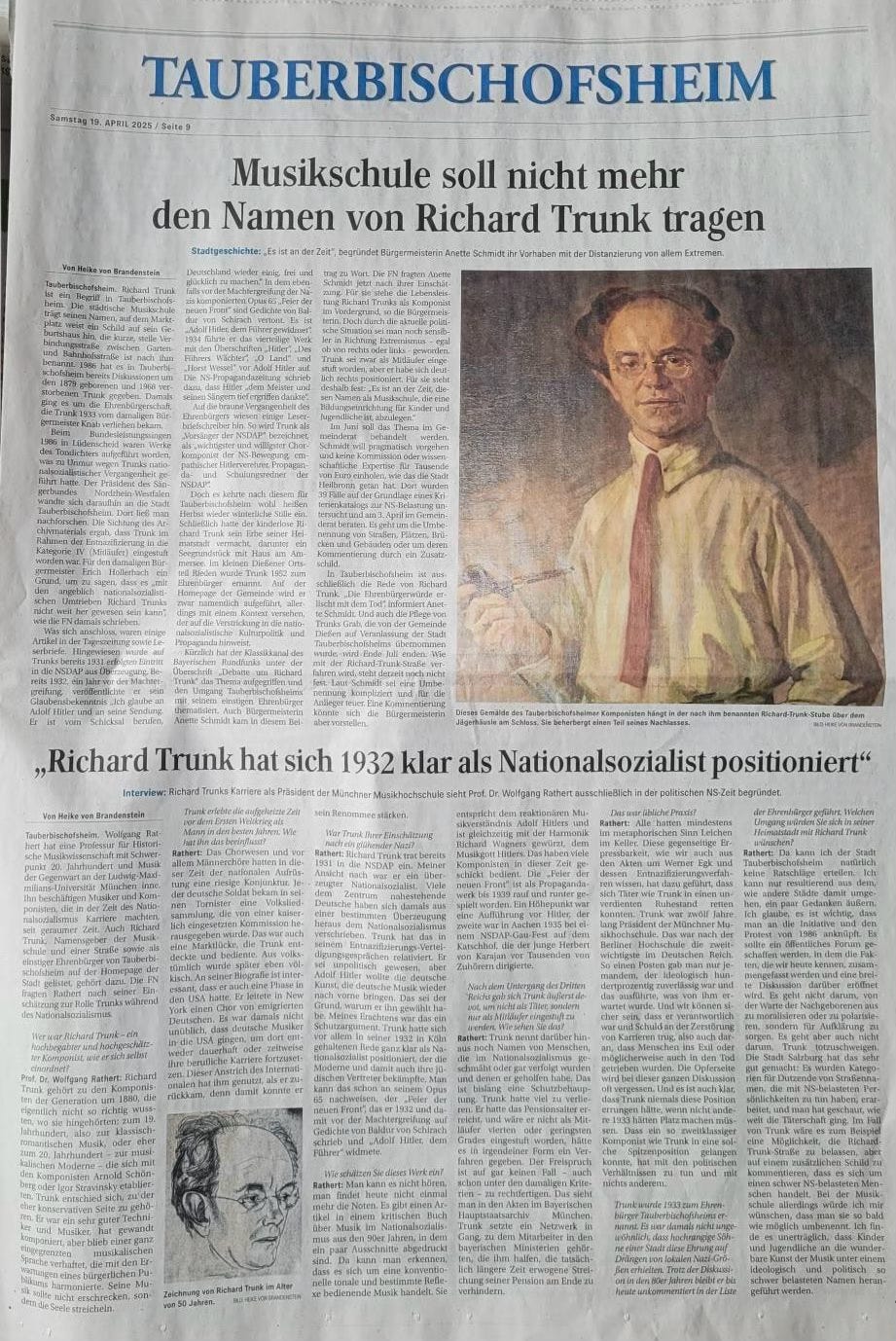Does tradition fit with democracy?
#342
My Dear Friend of Democracy,
Does tradition fit democracy?
If democracy is the tradition.
But what if not? What if the past was brutal, was fascism, was killing innocents? What if tradition is linked with such a past?
Then, we can use the past to learn from it.
Why do I ask?
In my hometown of Tauberbischofsheim, Germany, there's a rather famous man named Richard Trunk. He was not only a composer but also a "crystal-clear National Socialist," as research has shown. Worse, his entire career was based on his being an ardent supporter of Hitler. And yet, the music school in the northern Baden district town is named after him, the Richard Trunk Music School. And so is a street, and Trunk was also an honorary city citizen.
That is irritating.
Not a single word of criticism about Trunk reached me during my childhood and youth. A few weeks ago, Tauberbischofsheim Mayor Anette Schmidt stated on a Bavarian Broadcasting (BR) radio program that they had other concerns than renaming the music school. Now, I read in the local newspaper that she has changed her mind. The music school will be renamed. Presumably, the pressure had increased.
Self-determined action looks different.
Why did it take 80 years to dethrone a Nazi figure in my hometown?
I suspect this is because in Tauberbischofsheim, and of course not only there, some remembrance was hardly allowed from the very beginning, after Germany had lost World War II. Millions dead. The Jewish population in Europe almost wiped out. Who likes to face such guilt and shame? I, for one, couldn't have endured that.
Fortunately, I didn't live in that time. I was born in 1971.
I remember well when World War II was commemorated during my childhood and youth, the "fallen soldiers" were remembered above all— our own fallen soldiers, of course. There was never anything like a celebration of democracy in my hometown, an institutionalized celebration of joy at being liberated from Hitler and having democracy (re)gained. Democracy was the result of defeat.
That is why the tradition of the Nazi era has survived to the present day.
That's why the music school was named after Richard Trunk – where, incidentally, I took accordion lessons for several years without success. They held on to their fallen heroes.
That's bad, isn't it?
Worse, it took three generations to admit and change the mistake. It shows me that the democracy we Germans live in today may be built on more fragile foundations than we think. Also, because the pattern repeats itself. Again, we feel ashamed. Again, we feel guilty. This time, because we wait a long time to break away from supposed role models. Until it becomes at least that: embarrassing. Thus, memories remain tainted with shame—and are repressed once again.
My hope, however, is that things will change. The perpetrators are no longer with us. Those alive today never cheered Hitler. They bear no complicity in the seizure of power in 1933 and everything that came after. This makes it easier for us to remember. And to make the renaming of a music school a day of joy. A celebration of democracy. It's not too late.
It's not too late if we also use our tradition to question it. To separate what's worth preserving from what we should better part with.
See you in Democracy,
Johannes
Related: Debatte um Richard Trunk (BAYERISCHER RUNDFUNK, in German)



